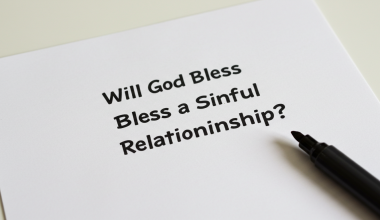Gamblers take risks in casinos. But do they take risks in relationships too? Some believe gambling and infidelity go hand in hand.
Others argue that gambling has nothing to do with cheating. This article explores the connection between gambling and unfaithfulness, looking at common behaviors, psychological factors, and studies on the topic.
The Risk-Taking Mindset
Gamblers enjoy high-risk situations. They crave excitement and unpredictability. Some gamblers apply the same mindset to relationships.
They may seek thrill outside their commitment, just like they chase the next big win. The rush of gambling and the thrill of a secret affair can feel similar, creating a cycle of risky behavior.
Additionally, risk-takers often underestimate consequences. A gambler may believe they can manage both their habit and their relationship without negative outcomes.
Unfortunately, gambling and infidelity both rely on luck, eventually, the odds turn against them.
Impulsivity and Poor Decision-Making
Gambling often leads to impulsive actions. Some gamblers struggle with self-control. They make reckless financial choices. This impulsivity can also affect their personal lives. In moments of weakness, they may act on temptation without thinking of the consequences.
Studies show that compulsive gamblers often have lower impulse control, making them more likely to engage in risky behaviors, including infidelity.
If a gambler has difficulty resisting the temptation of placing a risky bet, they might also struggle to resist the temptation of cheating.
Deception and Secretive Behavior
Many gamblers hide their habits from their partners. They may lie about money, time spent gambling, or losses. This pattern of dishonesty can extend to relationships.
If someone is comfortable with deception in one area, they may justify it in another.
For example, a gambler may tell their partner they were working late, when in reality, they were at a casino. Once dishonesty becomes a habit, it is easier to extend it to other aspects of life, including relationships.
A person who frequently lies about money may find it easier to lie about who they are spending time with.
Emotional Escape and Cheating
Some gamblers experience stress from financial loss. Others feel guilt over their addiction. They may use affairs as a way to escape emotional distress.
An affair can provide temporary relief from their problems, just like gambling does.
Gamblers often chase the next win to relieve their anxiety, much like a person caught in an affair might seek comfort in someone outside their primary relationship.
Unfortunately, these escapes are only temporary. Eventually, the consequences of both gambling and cheating catch up.
Financial Struggles and Infidelity
Gambling addiction can lead to debt. Financial problems create tension in relationships. A gambler who feels trapped may seek comfort in someone else.
In some cases, gamblers may engage in affairs for financial gain, especially if they need money to continue gambling.
In extreme cases, gamblers may engage in financially motivated infidelity. They might seek relationships with wealthier partners or individuals who can fund their addiction.
This type of cheating is not always about romance, it can be about financial survival.
Addiction and the Search for Dopamine
Gambling activates the brain’s reward system, releasing dopamine, the chemical associated with pleasure. The thrill of winning (or even the anticipation of a win) keeps gamblers hooked.
Interestingly, infidelity can trigger the same chemical reaction. The excitement of sneaking around, the thrill of new romance, and the emotional high of secrecy all contribute to an addictive pattern.
This explains why some gamblers and cheaters find it difficult to stop, even when they know they are harming themselves and others.
Studies on Gambling and Cheating
Research shows a link between gambling addiction and relationship issues. A study from the National Council on Problem Gambling found that problem gamblers are more likely to experience divorce.
Another study from Cambridge University linked compulsive gambling with risky behaviors, including infidelity. While not all gamblers cheat, statistics suggest a connection.
Psychologists have also found that compulsive gamblers often share personality traits with serial cheaters.
Both groups exhibit high levels of impulsivity, poor long-term planning, and a tendency to prioritize short-term pleasure over long-term stability.
Do All Gamblers Cheat?
Not all gamblers are unfaithful. Some manage their habits responsibly. Others stay loyal to their partners despite their addiction.
Factors like personal values, self-control, and relationship satisfaction influence behavior.
It is important not to assume that all gamblers cheat, just as not all people who drink alcohol become alcoholics.
While gambling can be a risk factor for infidelity, personal character and relationship dynamics play a major role.
How to Protect Your Relationship
If your partner gambles, communication is key. Discuss concerns openly. Set boundaries around gambling and financial transparency.
Seek support if gambling becomes a problem. Therapy and addiction programs can help restore trust and stability.
It is also important to recognize early warning signs. If a gambler starts hiding their activities, lying about finances, or withdrawing emotionally, these could be red flags
Addressing gambling issues early can prevent deeper relationship problems.
Final Thoughts
Gamblers take risks, but that does not mean they always cheat. However, impulsivity, dishonesty, and financial stress can increase the chances of infidelity.
Recognizing warning signs and addressing gambling issues early can help maintain a strong relationship.
Understanding the psychology behind gambling and infidelity can also help individuals make better choices and seek help when needed.






